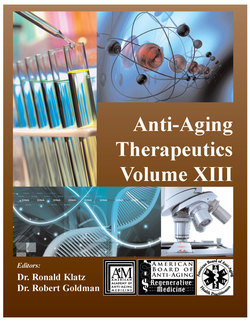Читать книгу Anti-Aging Therapeutics Volume XIII - A4M American Academy - Страница 61
На сайте Литреса книга снята с продажи.
ABSTRACT
ОглавлениеIn a series of studies published in 2000 and later, researchers began to demonstrate the importance of epigenetic influences on gene expression. Genes might be silenced through methylation, or their expression facilitated by acetylization. A further step occurred when behaviors and psychological states were noted to regulate the activity of genes. A body of evidence has now been accumulated that assesses the specific genes affected by behavioral influences such as nurturing, by lifestyle interventions such as meditation, by emotions, and by alleviating psychological conditions such as depression, anxiety and post-traumatic stress disorder (PTSD). Comparisons of the relative lengths of telomeres in identical twins, who start life with identical genes, show that emotional stress can result in one twin having a cellular age that is as much as 10 years older by age 40. New studies in the field of energy psychology also indicate that these psychological and emotional stressors may be remediated much more rapidly than previously believed possible, and that behavioral and psychological influences regulate the genes responsible for inflammation, immune function, and cellular regeneration, among others. These advances provide fruitful new avenues for research into the epigenetic properties of simple behavioral and emotional skills such as meditation, the Relaxation Response, and Emotional Freedom Techniques (EFT), and point to the potential of these methods as potent anti-aging and medical interventions.
Keywords: epigenetics, behavior, emotions, meditation, Relaxation Response, EFT (Emotional Freedom Techniques), stress, aging.
